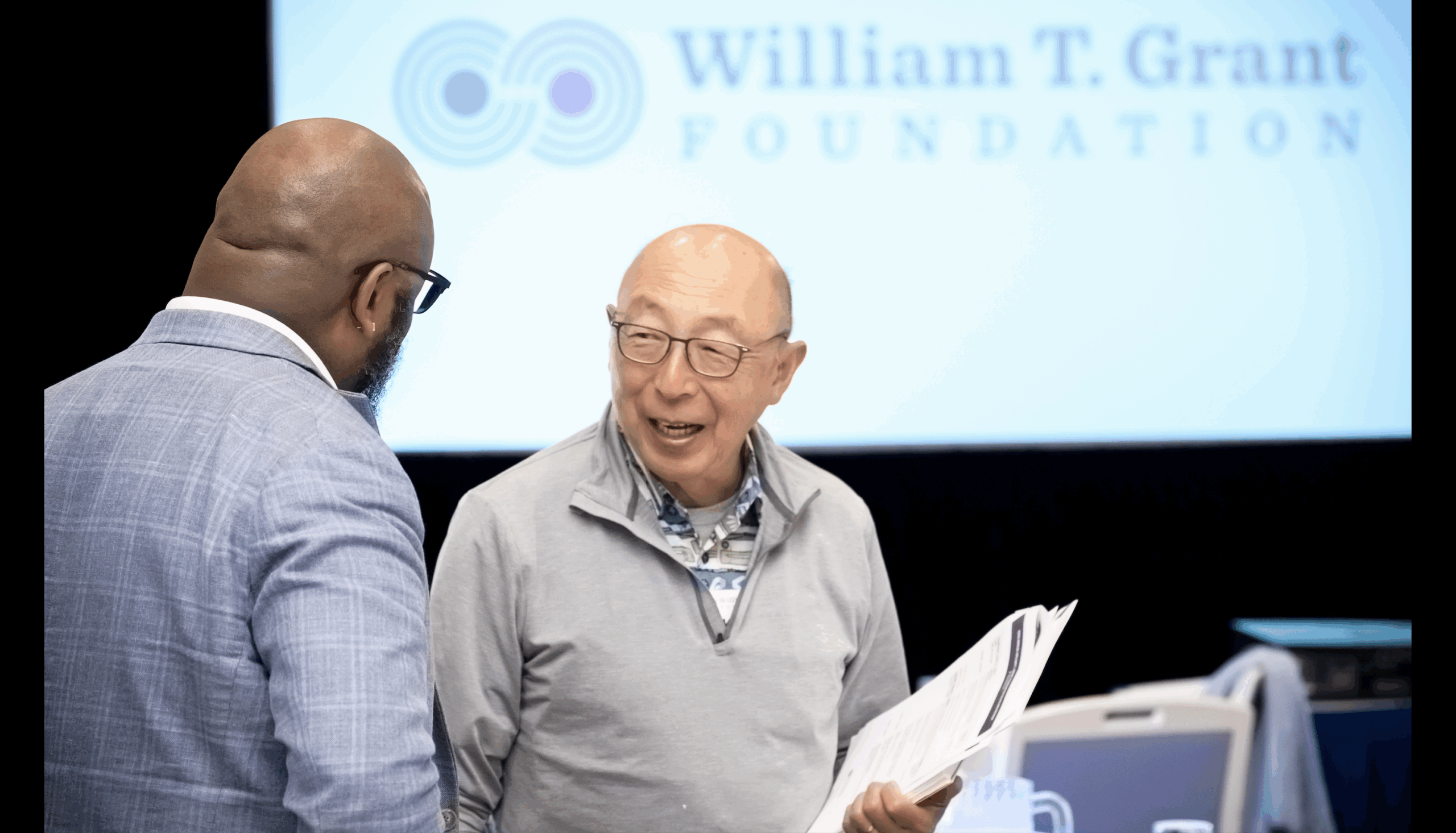I recently had the pleasure to spend a few days with scholars and staff from the William T. Grant Mentoring Grant program. Melissa Wooten and I collaborated on a retreat program intended to create brave and visionary spaces for mentors (senior scholars) and mentees (junior scholars) to reflect not only on their shared research projects, but also the essence of their shared journey over the two-year grant period—and potentially beyond.
Why “beyond?” While mentoring programs invest considerable energy setting up and supporting relationships, they focus less on what happens next. One essential discovery at the retreat was the need to establish expectations about the duration of mentoring relationships—that the Foundation had no expectation that relationships necessarily continue beyond the grant period. We felt it was important to lay these cards on the table.
While mentoring programs invest considerable energy setting up and supporting relationships, they focus less on what happens next
Melissa and I recounted experiences where it was either assumed or not explicitly stated that the mentoring relationship was to be a permanent one. This made it awkward for either party to decide that the dyad was no longer a priority or that other relationships demanded more time and focus. In other cases, the relationship had simply run its course: While there was affinity and positive feelings about the time together, it was time to move on. Another outcome was that the relationship presented challenges to one or both people, and the dyad just needed to end.
Because ending—or transforming—the relationship is an inevitability, our community of mentees and mentors helped bring into focus the need to “end well” and helped raise questions of power and privilege when phasing out mentoring relationship.
Navigating power differentials when closing out a mentoring relationship
One refreshing reality from the retreat was coming to understand that there were variances in how mentees and mentors viewed power dynamics in their relationships. For some, the mentor-mentee dyad was much more like a peer or near-peer pairing, with both partners bringing similar levels of involvement in careers and life experiences. Others, due to distance in exposure and engagement with research and ways of living, viewed the two-year grant period as an opportunity to come closer to understanding their respective roles in supporting one another.
At the same time, ending a mentoring relationship tends to raise uncomfortable realities about power differentials in relationships. In mentoring dyads, there is often a disconnect between how the mentor and mentee view power and hierarchy. Mentors may see eliminating structural barriers—or flattening hierarchies—as their role. Indeed, it’s my hope that this is an outcome during the two-year grant period. But from the mentee’s perspective, these hierarchies are enduring, and even if the mentor can lessen the distance, there is a larger and layered structure that can present challenges for junior partners.
Ending a mentoring relationship tends to raise uncomfortable realities about power differentials in relationships
Acknowledging the power and experiential differences in the dyad can actually lead to productive and constructive ways of conceptualizing the transition of the relationship. As the partners who hold more senior positions, mentors can set the tone by reflecting on their own mentoring histories and recalling how prior mentoring relationships transitioned. Prior experiences can help mentors revisit positive transitions and even advise on strategies to avoid. Mentees can also contribute by sharing their goals for the transition: Are they seeking an extension of the relationship, or would they prefer it end? If the relationship continues, at what level of intensity will it operate? These are some starting points for both parties to consider.
Frameworks for ending well
When one considers separation, it can be challenging to share shortcomings in the mentoring arrangement. But there are frameworks that dyads may find helpful when navigating the potential end of their relationship.
Organizational theorist Kathy Kram’s four stages of mentoring relationships offers one framework for dyads to consider. Kram charted the progress in relationships as 1) initiation: a short period where both mentor and mentee find value in the relationship; 2) cultivation: a longer period where both parties achieve maximum benefit and impact in the relationship; 3) separation: where a significant shift occurs, perhaps due to achieving the goals of the relationship, or in realization that those goals have not been achieved, creating feelings of satisfaction or disappointment, respectively; and 4) redefinition: which is the post-separation stage where the relationship is resolved in some manner.
Redefinition can be either an off-ramp, where the partners can appreciate the relationship for what they learned for the period and potentially move on as acquaintances, or an opportunity to collaboratively define the next stage
In the redefinition stage, there is great opportunity for both partners to think about how they will relate in the future. Redefinition can be either an off-ramp, where the partners can appreciate the relationship for what they learned for the period and potentially move on as acquaintances, or an opportunity to collaboratively define the next stage as peers, friends, or some other ongoing reciprocal relationship. Kram notes that the stages are not necessarily unidirectional, and that dyads can move back and forth between phases. It’s compelling to me that this model lends structure to what is frequently bespoke and novel with each mentoring relationship—and that it forces the realization that the relationship will change and ultimately transform, possibly in its ending.
***
When framing these conversations, using the language of assessment may be helpful. For instance, discussing the strengths in the relationship before presenting the unmet challenges can make the conversation easier—as well as providing valuable feedback for future developmental relationships.
Effective mentoring programs can also provide consultation and support for when things seem to feel wrong, rather than assuming a continual upward trajectory. In my time as senior consultant, I’ve served as a sounding board and advisor to mentoring dyads, helping to navigate questions and conflicts. The consulting role is another place to seek out advice about how to end the relationship in a manner that both parties feel is acceptable. There are also articles that discuss the end of a mentoring relationship—I found the advice in Carolyn O’Hara’s “How to Break Up with Your Mentor” to be particularly useful.
Focusing on “ending well” is a different and refreshing aspect of mentoring relationships. A two-year grant period is one way of marking closure and moving to a new phase, but other events can precipitate this eventuality. In discussing these issues at our mentoring retreat, we centered the possibility of keeping positive and productive relationships in good order—as both parties may find the need to collaborate again in the future, perhaps episodically or in a novel permutation, such as in a coaching, sponsorship, or advising relationship. Framing the relationship in such a way—and thinking about mentoring as a stage wise process, as Kathy Kram does—allows us to discuss and prepare for a transformation. The end will come, and it is to everyone’s benefit to anticipate what it will entail.





